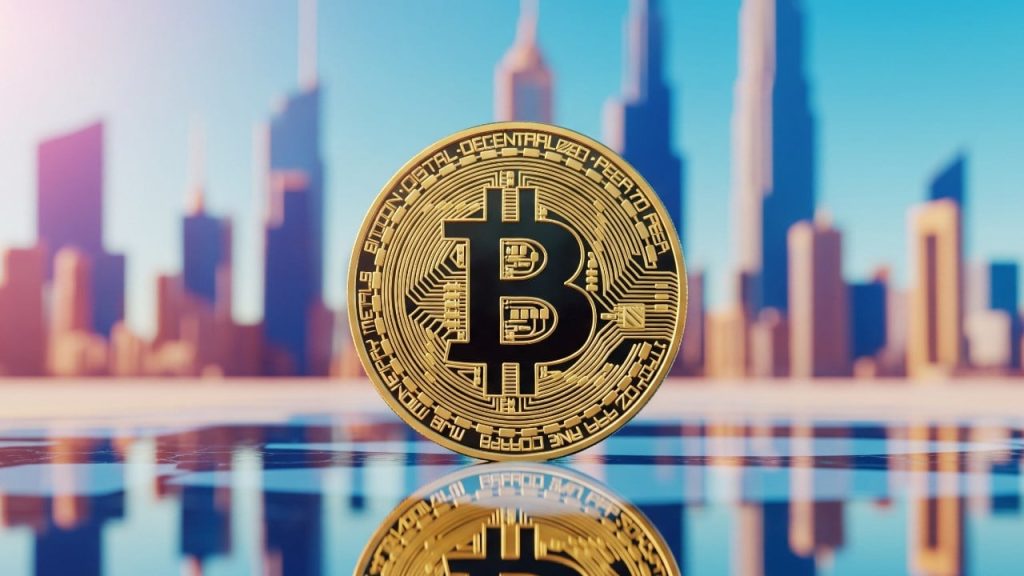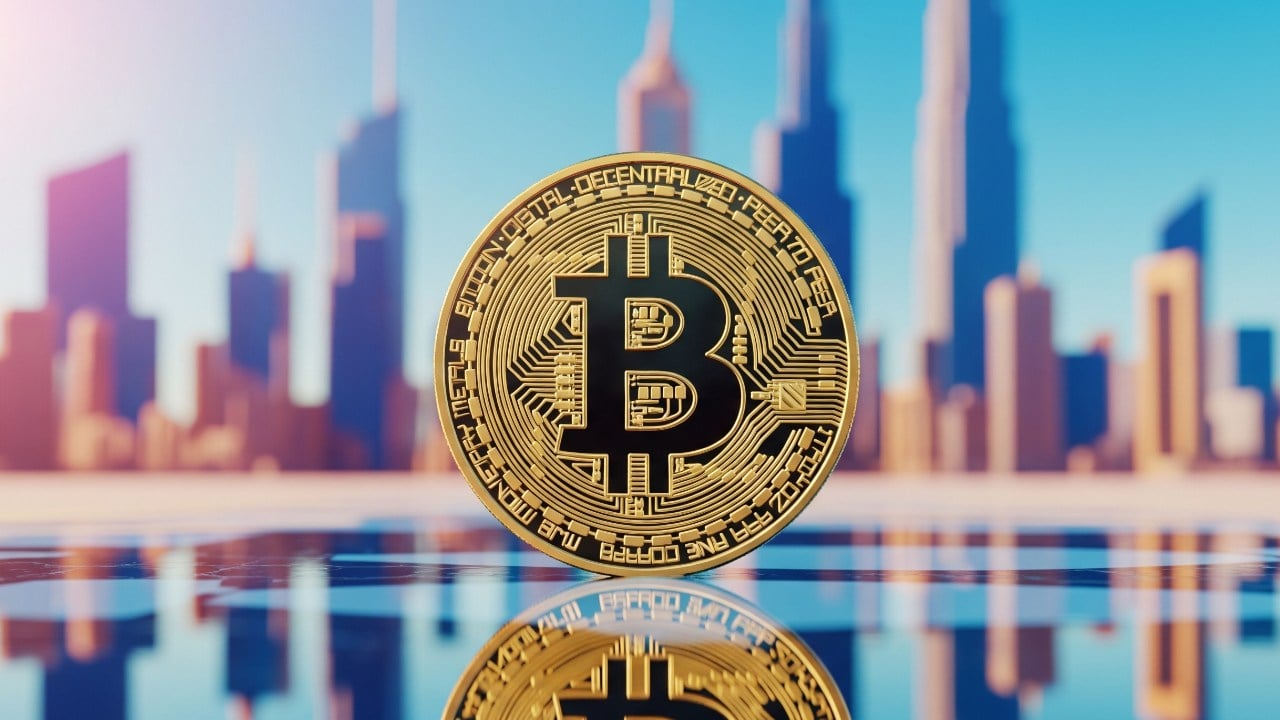
The idea that 0.1 Bitcoin (BTC) could one day surpass the value of a house in the United States is not just a bold prediction but a reflection of broader economic, technological, and cultural shifts. Changpeng Zhao (CZ), the founder of Binance, suggests that such a scenario is plausible, given the evolving landscape of wealth accumulation and the changing perceptions of value. This prediction challenges traditional notions of the American Dream, which has long been synonymous with homeownership. However, as digital assets gain traction, the idea of financial success may increasingly be tied to cryptographic wealth rather than physical property.
The Changing Face of the American Dream
For generations, the American Dream has been defined by the pursuit of homeownership—a symbol of stability, success, and financial security. The white picket fence and a well-kept lawn have been the hallmarks of achieving the Dream. However, CZ’s assertion that 0.1 BTC could one day outvalue a house suggests a fundamental shift in how wealth is perceived and accumulated. This shift is not merely about price appreciation but reflects deeper economic and cultural transformations.
The Value of 0.1 BTC
At current prices, 0.1 BTC is worth approximately $5,000–$7,000, a fraction of the median U.S. home value, which exceeds $400,000 in 2024. For 0.1 BTC to surpass the value of a house, Bitcoin would need to reach prices in the millions—a scenario that may seem far-fetched but is not impossible given Bitcoin’s fixed supply of 21 million coins. Owning 0.1 BTC means holding 1/1,000th of the entire supply, a significant fraction in a world where not everyone can accumulate such an amount. The scarcity of Bitcoin, combined with growing demand, makes it a compelling asset in an era of financial uncertainty.
Scarcity and Supply Dynamics
While real estate is also limited, its value is influenced by factors such as location, regulation, and economic conditions. Bitcoin, on the other hand, is not tied to any physical location and is immune to decay or property taxes. Its scarcity is mathematically enforced, making it a unique asset in the global financial landscape. The inelastic supply of Bitcoin contrasts sharply with the elastic supply of real estate, which can be influenced by new developments and renovations. This fundamental difference in supply dynamics could give Bitcoin a long-term advantage in terms of value appreciation.
Macro Trends Driving the Shift
Several macroeconomic trends are contributing to the growing appeal of Bitcoin as an alternative to traditional assets like real estate. High inflation, soaring home prices, and widening generational wealth gaps have made homeownership increasingly unattainable for many young Americans. In contrast, digital assets offer a borderless, cryptographically secure, and institutionally unconstrained alternative. The surge in institutional interest in Bitcoin, along with discussions about integrating it into traditional banking and mortgage infrastructure, further supports the idea that digital assets could play a significant role in the future of wealth accumulation.
Financial Fragility and Digital Hope
The Federal Reserve’s recent survey reveals that a third of Americans cannot cover a $400 emergency expense without going into debt. This financial fragility highlights the need for alternative wealth-building strategies. Bitcoin, despite its volatility, offers an asymmetric bet: the potential for small holdings to appreciate significantly over time. If even a fraction of global wealth shifts into Bitcoin, scarcity could drive its price to unprecedented heights, reshaping the landscape of personal finance and investment.
The Psychological Shift: From Deeds to Digital Wallets
The prestige associated with homeownership has long been a marker of success in American society. However, if CZ’s prediction comes to fruition, the status symbol of the future may shift from physical property to digital assets. Flexing a 0.1 BTC balance on a hardware wallet could become a new badge of honor, surpassing the traditional markers of success like owning a McMansion. This psychological shift reflects a broader cultural transformation, where digital ownership is increasingly seen as a viable and desirable alternative to physical assets.
Security and Sovereignty
Houses provide shelter but are subject to risks such as destruction, seizure, or excessive taxation. Bitcoin, when self-custodied, offers personal sovereignty—resistant to confiscation, portable across borders, and theoretically immune to the whims of central banks or local governments. This aspect of Bitcoin’s appeal is particularly significant in an era of economic uncertainty and geopolitical instability. The ability to hold and transfer wealth without intermediaries is a powerful draw for those seeking financial independence and security.
Accessibility and Barriers to Entry
Homeownership in the U.S. is often hindered by bureaucratic hurdles, credit scrutiny, and red tape. In contrast, acquiring Bitcoin requires only an internet connection and a crypto wallet, making it a more accessible option for those excluded from traditional wealth-building pathways. This accessibility resonates with younger generations who are disillusioned with the traditional financial system and seek alternative means of accumulating wealth.
Economic Realities: Can Bitcoin Outpace Real Estate?
For 0.1 BTC to outvalue a median American home, Bitcoin would need to reach at least $4,000,000 per coin. While this may seem like a distant possibility, several factors could contribute to such an outcome. Sovereign debt is ballooning, currency debasement fears are spreading, and Bitcoin’s halvings continue to reduce the supply of new coins. These factors, combined with sustained global demand, could drive Bitcoin’s price to unprecedented levels. However, risks such as volatility, regulatory actions, and technological challenges must also be considered.
Cultural Implications of a Bitcoin-Dominated Future
If CZ’s prediction becomes a reality, the cultural implications would be profound. The American Dream would be redefined, with digital wealth becoming the new benchmark for success. This shift could lead to a greater emphasis on self-custody, decentralized finance, and cryptographic security as the cornerstones of financial independence. However, it also raises questions about the potential downsides, such as the erosion of physical communities and the social contract around housing and retirement.
The Future of the American Dream
The idea that 0.1 BTC could one day outvalue a house is a testament to the evolving nature of wealth and success. While the traditional American Dream has been rooted in homeownership, the digital age is reshaping our perceptions of value and security. Whether Bitcoin achieves such stratospheric prices remains to be seen, but the conversation itself reflects a broader societal shift toward alternative models of prosperity. Ultimately, the American Dream may always have been less about the physical structures we own and more about the sense of security, possibility, and self-determination we can achieve. In a networked world, the next chapter of the Dream may indeed be written in code and cryptographic signatures.





